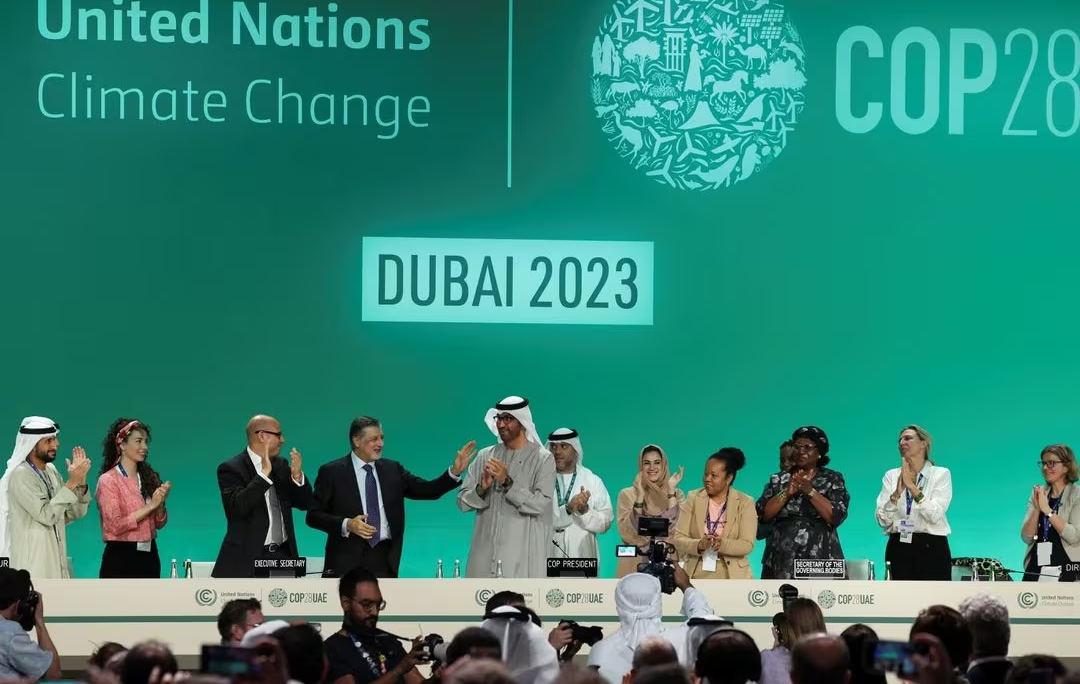By Furera Mohammed
Representatives from nearly 200 countries agreed at the COP28 climate summit on Wednesday to begin reducing global consumption of fossil fuels to avert the worst of climate change, a first of its kind deal signaling the eventual end of the oil age.
The deal struck in Dubai after two weeks of hard-fought negotiations was meant to send a powerful signal to investors and policy-makers that the world is united in its desire to break with fossil fuels, something scientists say is the last best hope to stave off climate catastrophe.
COP28 President Sultan Al Jaber called the deal “historic” but added that its true success would be in its implementation.
“We are what we do, not what we say,” he told the crowded plenary at the summit. “We must take the steps necessary to turn this agreement into tangible actions.”
Several countries cheered the deal for accomplishing something elusive in decades of climate talks.
“It is the first time that the world unites around such a clear text on the need to transition away from fossil fuels,” said Norway Minister of Foreign Affairs Espen Barth Eide.
More than 100 countries had lobbied hard for strong language in the COP28 agreement to “phase out” oil, gas and coal use, but came up against powerful opposition from the Saudi Arabia-led oil producer group OPEC, which argued that the world can slash emissions without shunning specific fuels.
That battle pushed the summit a full day into overtime on Wednesday, and had some observers worried the negotiations would end at an impasse.
Members of the Organization of the Petroleum Exporting Countries control nearly 80% of the world’s proven oil reserves along with about a third of global oil output, and their governments rely heavily on those revenues.
Small climate-vulnerable island states, meanwhile, were among the most vocal supporters of language to phase out fossil fuels and had the backing of huge oil and gas producers such as the United States, Canada and Norway, along with the EU bloc and scores of other governments.

